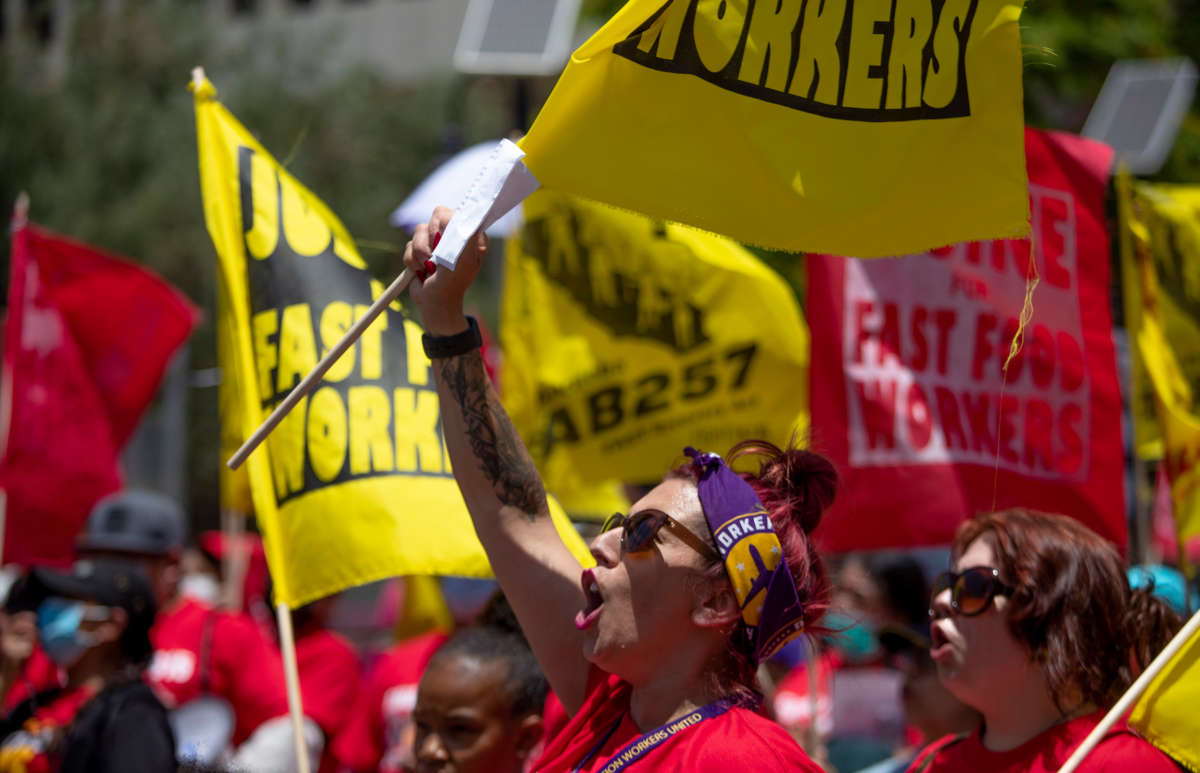California Gov. Gavin Newsom signed a bill on Monday that will likely lead to the creation of new standards that will improve working conditions for workers in the fast food industry.
The legislation, which Newsom announced he had signed on Labor Day, establishes a 10-member Fast Food Council. The Council will be able to enact standards for fast food workers, including rules on wages and the amount of hours a person can work.
The law would not affect all restaurants or fast food operations in the state. Only fast food restaurants with 100 or more locations in California would be subject to the Council’s standards, the law stipulates.
The law “gives hardworking fast-food workers a stronger voice and seat at the table to set fair wages and critical health and safety standards across the industry,” Newsom said in a statement.
The Council will have an equal number of workers’ delegates and employers’ representatives. It will also include two state officials, CBS News reported.
The legislation places a cap on how much the minimum wage can be raised, but still allows a significant increase over what fast food workers are currently compensated.
The living wage for a single adult with no children in California is among the highest in the country, at $21.82 per hour, according to MIT’s living wage calculator. The amount is higher for couples and people with children.
Presently, the minimum wage for fast food workers in the state is $15.50 per hour. Under the new law, the Fast Food Council could increase the minimum wage to $22 per hour.
The Council will also have the authority to create automatic raises in the future that are tied to yearly cost of living adjustments.
Business leaders and fast food CEOs have adamantly opposed the legislation, claiming that it could lead to steep increases in fast food costs for consumers. But studies have demonstrated that any costs associated with raising the minimum wage for food workers are minimal.
One study examining minimum wage increases over the past several decades, for example, found that, for every 10 percent increase in the minimum wage, costs at restaurants only increased by 0.36 percent. This would mean that should the Council implement a $22 per hour minimum wage, a $5 meal at a fast food restaurant in California would only increase costs by about seven cents.
Advocates of the law have said that cost increases, if any, will be minimal. What’s more, the legislation will allow fast food workers to have more power to unionize and collectively bargain in California.
Fight For 15, an organization that promotes economic and racial justice for workers across the country, lauded the passage of the bill.
California “will soon have a Fast Food Council that will include workers and our advocates who will sit down w/gov reps and business to set standards for over 550,000 California workers,” the group wrote on its official Twitter page.
The organization then acknowledged those who fought for workers’ rights in the past.
“We can’t forget the nearly 10 years of relentless organizing that brought us here,” Fight For 15 said. “Today would not be possible without the efforts of our workers leaders.”
Press freedom is under attack
As Trump cracks down on political speech, independent media is increasingly necessary.
Truthout produces reporting you won’t see in the mainstream: journalism from the frontlines of global conflict, interviews with grassroots movement leaders, high-quality legal analysis and more.
Our work is possible thanks to reader support. Help Truthout catalyze change and social justice — make a tax-deductible monthly or one-time donation today.
